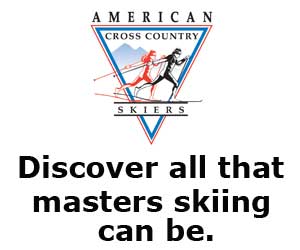
Peru to compete at 2010 Winter Olympics
Winter Olympics
Sat, Dec 26, 2009 - By FIS
Peruvian Roberto Carcelen is set to compete at the 2010 Winter Olympics in Vancouver in a sport many of his countrymen have probably never heard of. But although cross-country skiing isn't known in South America, in some parts of the world it's more popular than futbol.
We recently caught up with Roberto to ask him a few questions about his recent success in this sport from the Northern Hemisphere.
How many other Peruvians are participating in the 2010 Winter Olympics? Although interest is always high in Peru on the summer Olympics, I don't believe they have even broadcast the winter Olympics in the past. Perhaps you will give them reason to do so this year.
R.C. So, far I'm the only one who has met the qualification criteria and therefore got a spot in the Olympics. As a matter of fact, I'm the first Peruvian ever to qualify to the Winter Olympics.
Yeah, I don't remember watching the Winter Olympics on TV while living in Peru. I hope the fact of Peru going to a Winter Olympic would attract more people's interest in knowing about winter sports.
What is your athletic background and how did you get involved with cross-country skiing?
R.C. I grew up surfing, lots of surfing and running too. But surfing was my main thing and I did pretty well at national surfing contests (back in the '90s).
How similar is the fitness level of cross-country skiing to running, and how well did you make the transition from one to the other?
R.C. As you know, the fitness needed for cross country skiing can't be compared to other sports, since the amount to muscle and oxygen levels used for cross country skiing is way greater than running and the gap is even bigger if you compare it to cycling. Surfing is pretty close though.
I understand that you took it upon yourself to meet the FIS (International Ski Federation) qualifications to get into the Olympics even though you would have been allowed to compete even without meeting them. What was required and why was meeting that standard important to you?
R.C. Actually, there is a qualification criteria requirement in order to be in the Olympics (the New York Times got it wrong there). In fact, it took me a while to meet all requirements. The FIS has two requirements: Achieve an average of FIS points out of 5 races under 300 points and had to have raced at the 2009 Cross Country Ski World's in the Czech Republic.
Can you briefly explain the FIS points system?
R.C. Points are calculated by using a FIS calculation formula (hard to explain how it works) and based on
percentage back from the winner plus the average of points of the three top finishers.
What was your first experience in a ski race like? How did it feel to be competing against people in a sport that was new to you, against people who had done it for years?
R.C. I kind of picked the sport up pretty quickly, my first races were local, regional level I finished 4th overall on my first race and then top 10 several other northwest races, I won two of them (30 km skate) but the story is way different once you hit the major leagues like in the last world's or the Nor Ams, very tough but a great full speed learning system.
Three years is a short amount of time to perfect your technique, where would you say your technique is at by comparison to skiers from Norway, or Sweden (countries where XC-skiing is as popular as futbol is in Peru)?
R.C. My technique has improved 300 percent compared to a year ago and still has tons of room for improvement to be at Nordic country levels. I think surfing really helped or gave a base for balance.
What are your expectations for the Olympics?
R.C. My goal is to achieve 120 points or under to start some of the World Cup events. Since the Olympics has zero penalty, it might be a good option. My main goal is to have Peru skiing hard at the Olympics.
Who waxes, stonegrinds and otherwise prepares your skis?
R.C. I'm bringing help, some staff to help me with waxing, but my stone grind ski quiver is divided between Nordic Ultratune and Boulder Nordic Sports.
What is the role of your coach?
R.C. My coach has been really helping me out to reach the final goal that was getting the under 300 points in. Also, he helped me set a good race pace. I'm working with two great local athletes to improve technique and fitness: Vesa Suomalainen and Kent Murdoch.
I understand you are involved with incarunners.com. Can you tell a little bit more about what that is and how it relates to your training?
R.C. I learned of the Chasquis first time i went to the Andes. They were endurance messenger runners from the Inca Empire, they had the role of posting and delivering goods to the Inca royalty running on the Inca Trail system. I got inspired by the ideal of these old Peruvians and the fact the the Inca Trail system is still there, to offer all inclusive running tours on the Inca Trail to Machu Picchu. I ran all those trails several times, they are amazing, best altitude training while visiting the main tourist attractions.
With events like the Lima Half Marathon and the Adidas Marathon, Lima is becoming a city with a lot of superb running events. What are your feelings on that?
R.C. I think it's great that Peruvians are getting involved in more active events, that's a good sign of a healthy city. I'm bringing a big running event to Lima and a big cause. In conjunction with Al Gore's Live Earth's non profit, I have the rights to set the Dow Live Earth Run for Water Lima. On April 18, 2010 is a series of 6km run-walks - the average distance women and children walk everyday to secure water - taking place over the course of 24 hours in 192 countries, featuring concerts and water education activities to ignite a massive global movement to help solve the water crisis. Please join us, more details to come...
Good luck in Vancouver, you've already made Peru proud!
